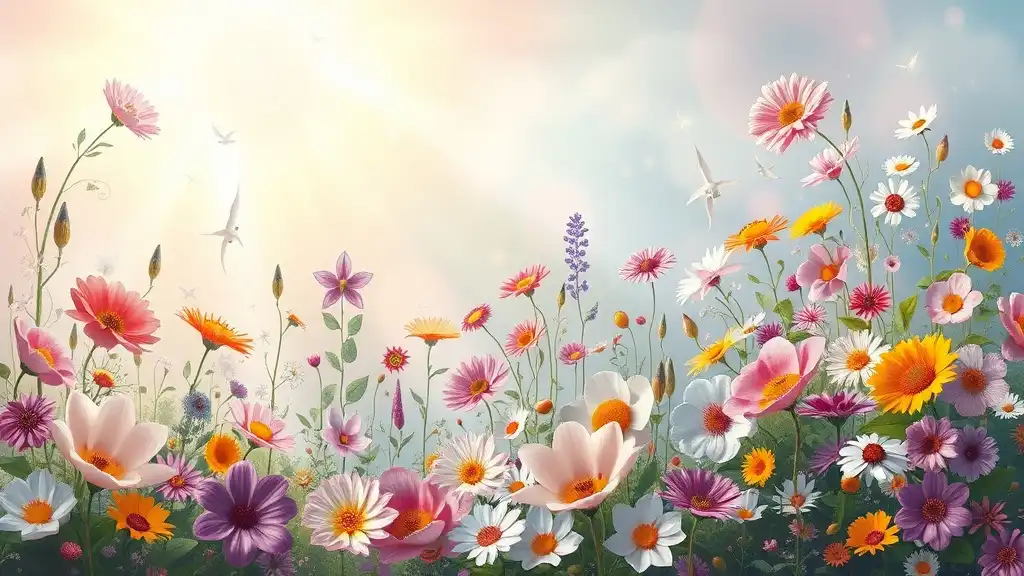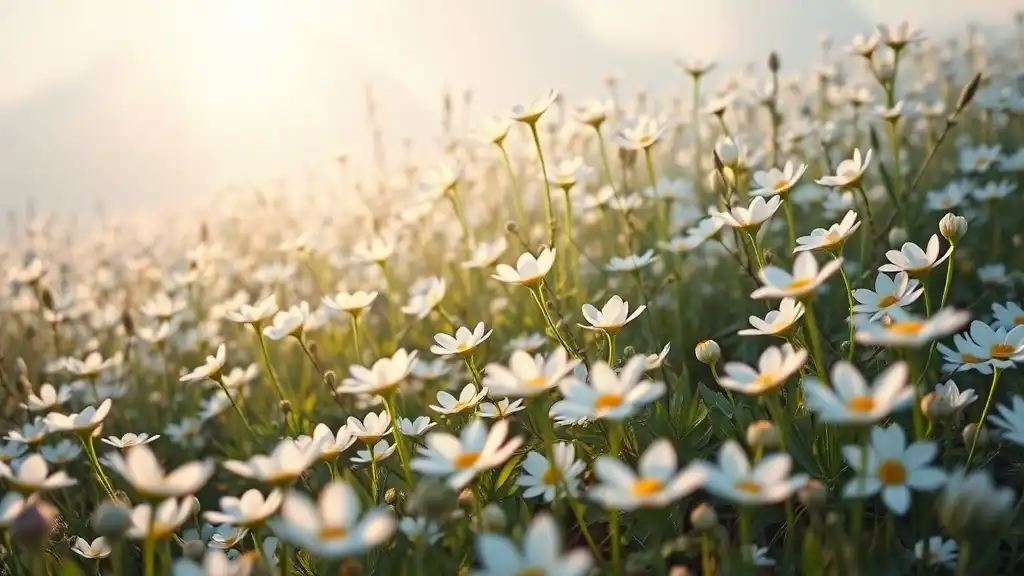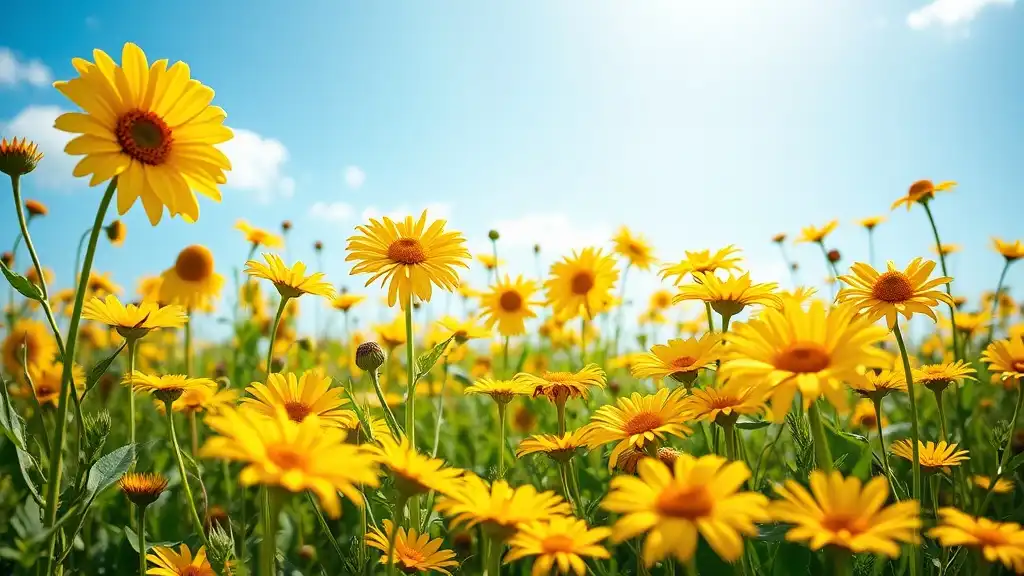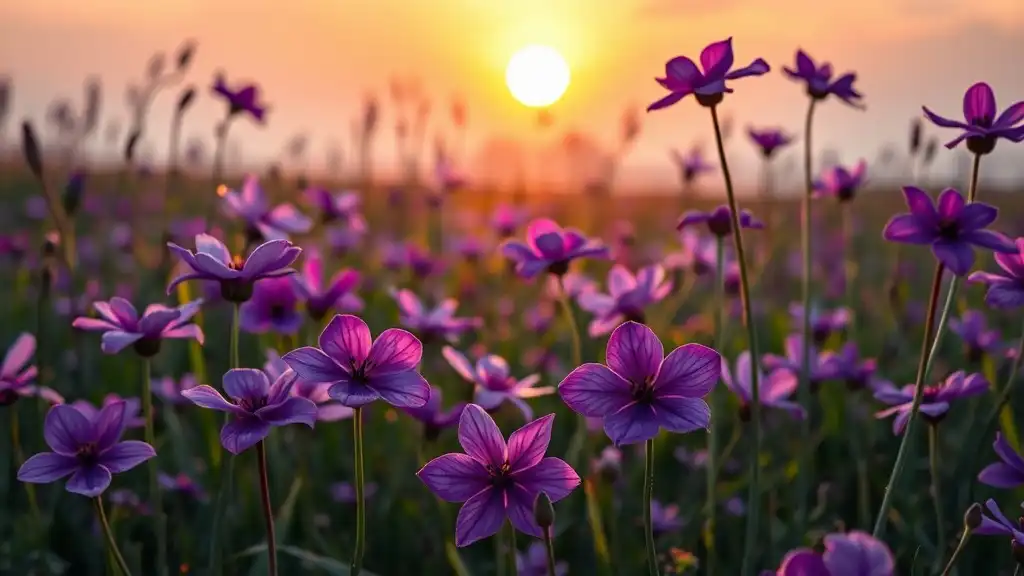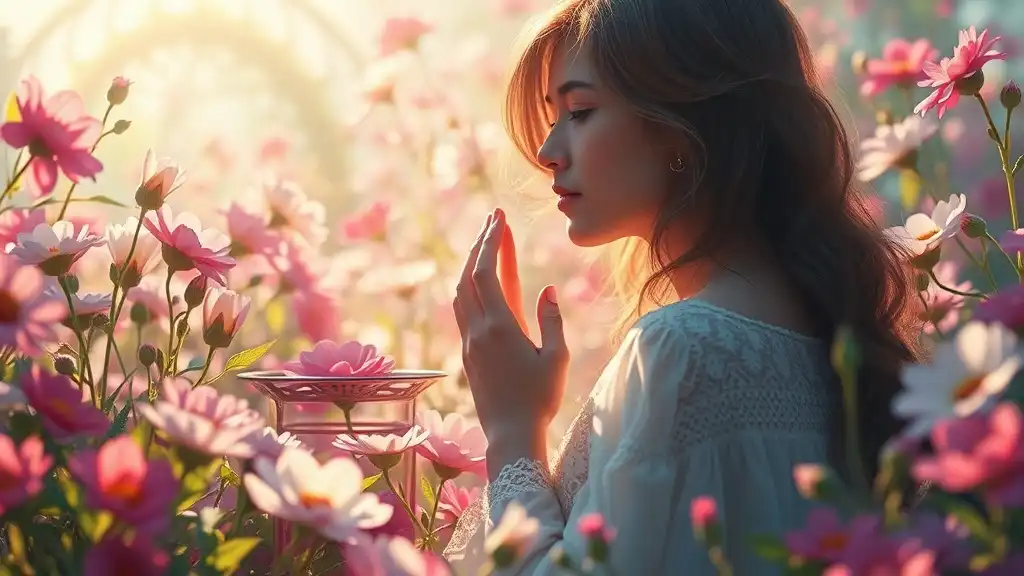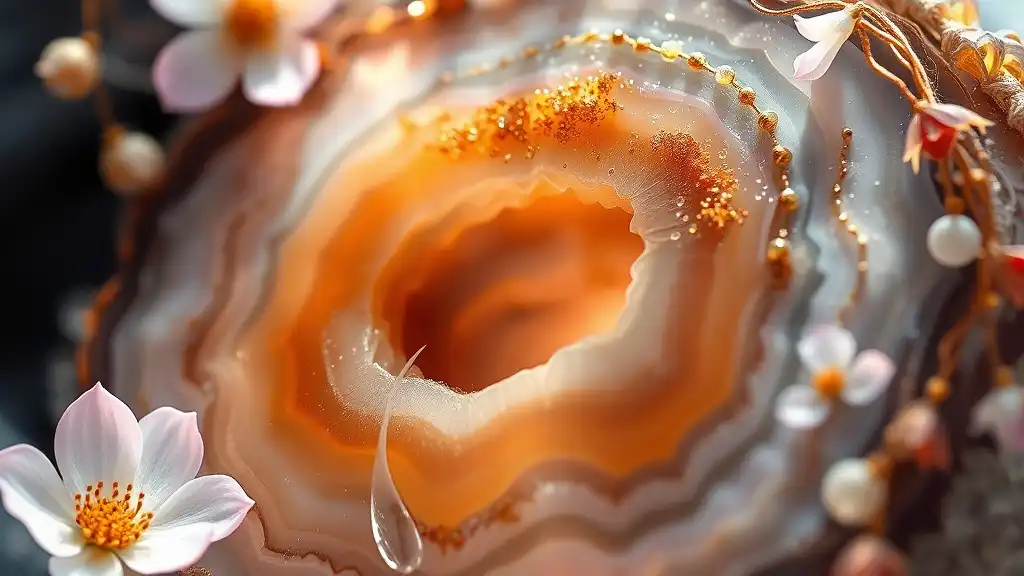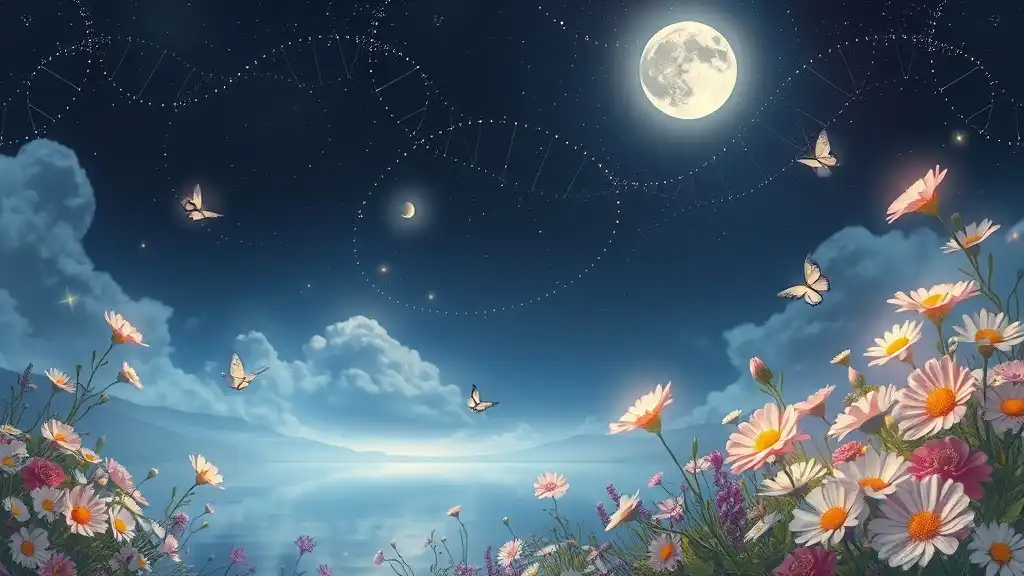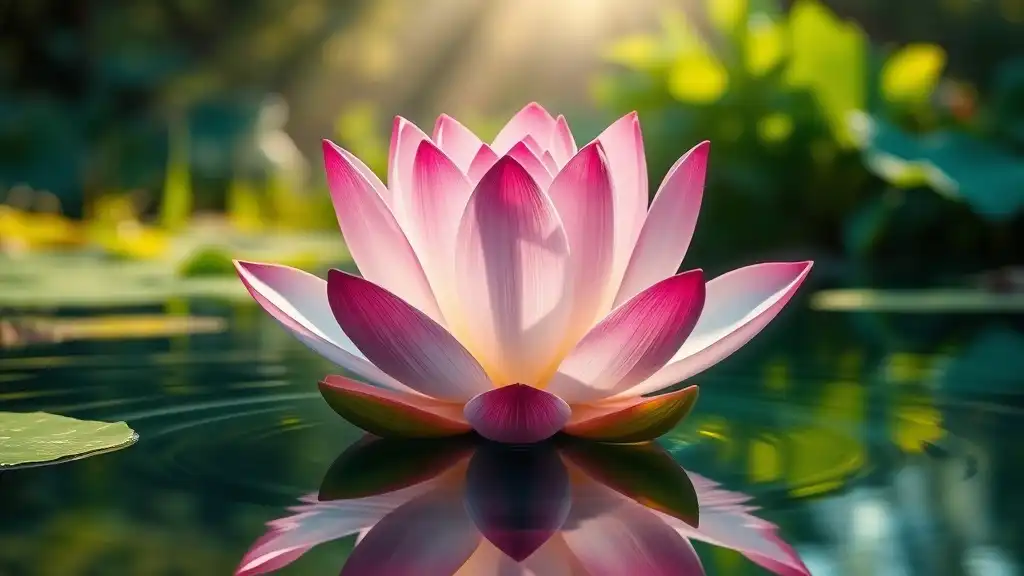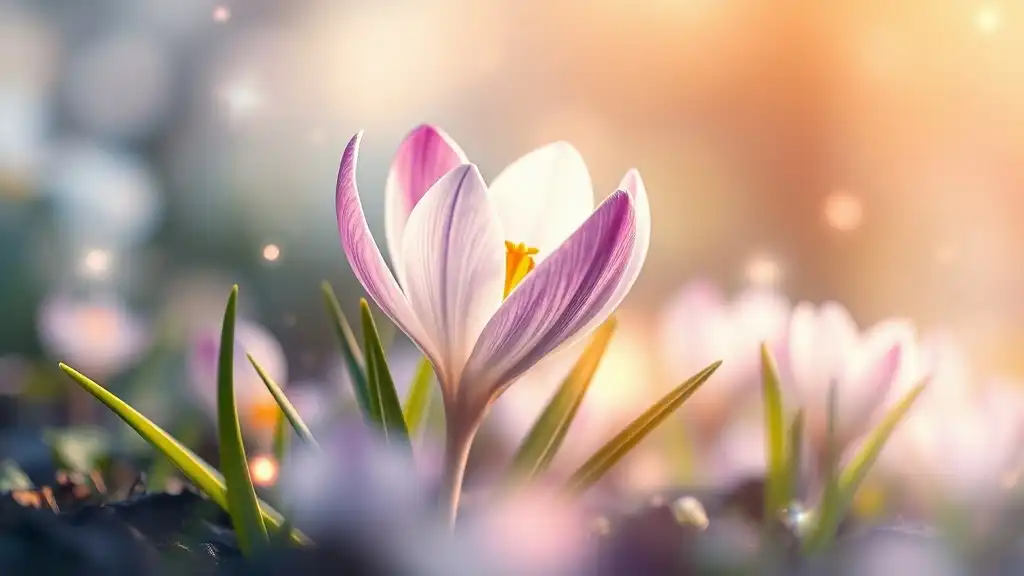The connection between flowers and spirituality is profound and multifaceted. Flowers have been revered across various cultures and traditions as symbols of spirit, growth, and the interconnectedness of life. Understanding the spiritual meanings of flowers enriches our daily experiences and brings us closer to nature, while also allowing us to explore deeper aspects of our own being.
The Essence of Flowers in Spirituality
The Universal Language of Flowers
Flowers have their own language, a silent yet powerful mode of communication that expresses a wide range of emotions, thoughts, and feelings. This language transcends geographical and cultural boundaries, allowing individuals from different backgrounds to connect through the shared symbolism of flowers. From ancient times, flowers have been used to convey love, sympathy, and respect, often featuring prominently in special occasions and rituals.
For instance, white lilies are frequently associated with purity and transcendence, while red roses signify passionate love. Each flower has its own unique message, making them integral to both personal expression and collective meaning in various spiritual practices.
Flowers as Symbols of Growth and Transformation
The life cycle of a flower beautifully represents the journey of spiritual growth. Just as a seed must break open and push through the soil to bloom, individuals often undergo challenges and transformations that lead to greater awareness and enlightenment. The process of blooming is a metaphor for awakening to our true selves, emphasizing that each phase—budding, blooming, and wilting—serves as a lesson in our own development.
The vibrant colors and diverse forms of flowers serve as reminders to embrace our own unique journeys and to honor the natural rhythms of life. Every petal falling can be seen as a shedding of the old, making way for new experiences and wisdom.
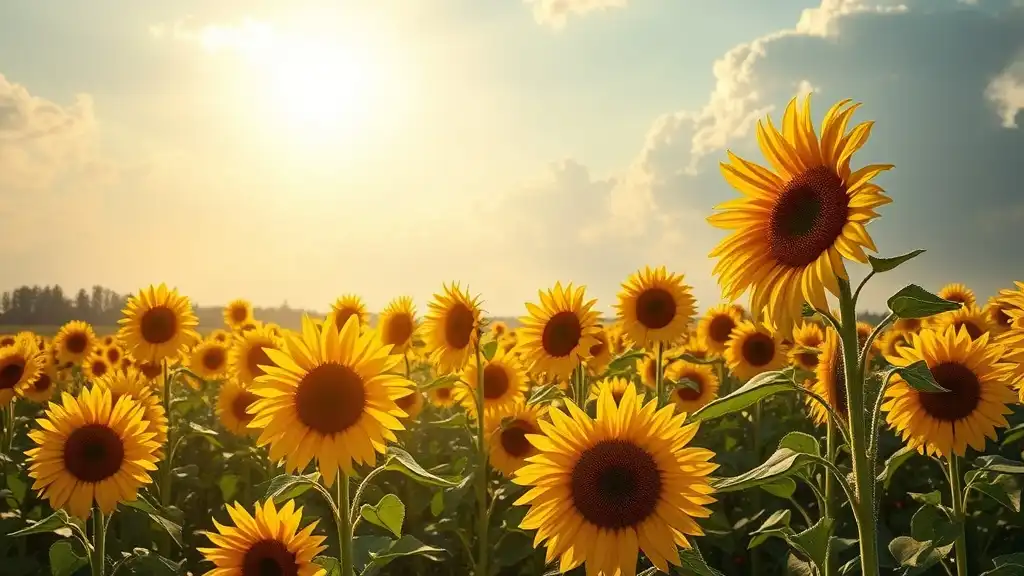
Spiritual Meanings of Common Flowers
Roses
Roses are perhaps the most recognizable flowers associated with spirituality, most notably symbolizing love, passion, and devotion. Different colors of roses carry distinct spiritual meanings. For example, red roses are synonymous with romantic love, while yellow roses represent friendship and joy. Blue roses, although rare in nature, symbolize mystery and the unattainable, encouraging us to seek the extraordinary within our lives.
The spiritual significance of roses extends far beyond mere appearance; they often appear in religious rituals and sacred texts, synonymous with the divine, emphasizing love’s transcendental nature.
Lilies
Considered sacred in many cultures, lilies embody purity, renewal, and the divine. In Christianity, the Madonna Lily often symbolizes the Virgin Mary, highlighting the sacred feminine and the concept of new beginnings.
In various Eastern traditions, lilies are seen as symbols of spiritual enlightenment, emerging from muddy waters to provide beauty and inspiration. Their elegant form and fragrance enhance spiritual practices, making them ideal for offerings at altars and meditation spaces.
Sunflowers
Sunflowers are vibrant symbols of joy, warmth, and positivity. They are particularly notable for their ability to track the sun, embodying the concept of spiritual awakening and enlightenment. The act of following the sun symbolizes the journey toward enlightenment, encouraging individuals to seek positivity and embrace their inner light.
In folklore, sunflowers are often associated with fidelity and loyalty, making them powerful tokens for spiritual connections and friendships. Their bright appearance invokes feelings of happiness, grounding those who encounter their beauty.
Daisies
Daisies are emblematic of innocence, purity, and new beginnings. They carry a playful energy, often connected to childhood innocence and the joy of life. This flower's simple beauty reminds us of the importance of staying grounded and appreciating life's little pleasures.
In many spiritual traditions, daisies serve as symbols of hope and renewal. Their fresh appearance and resilience inspire us to embrace new opportunities and awaken our fearless spirit, prompting personal growth and a deeper connection with the universe.
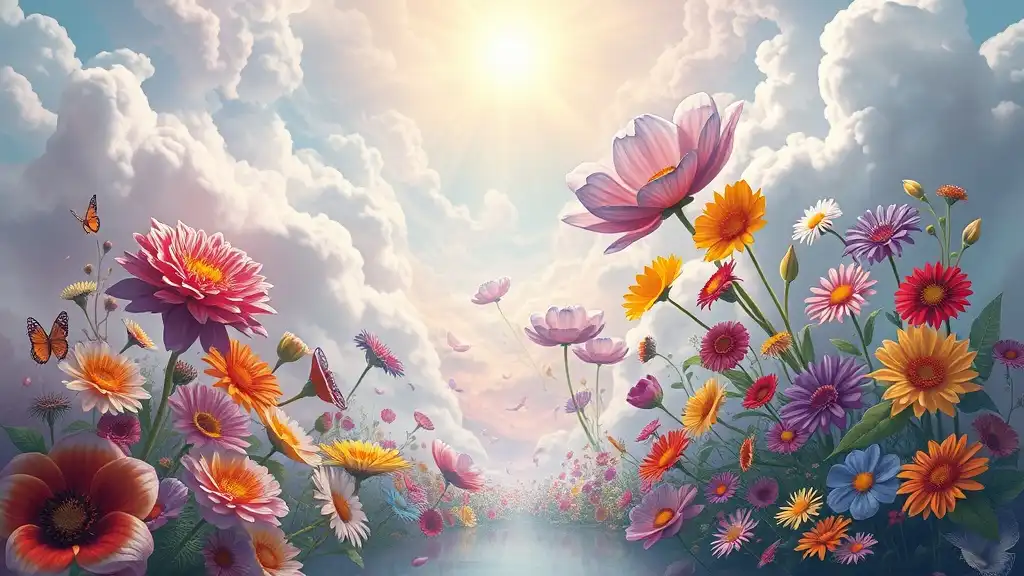
Cultural Perspectives on Flower Symbolism
Eastern Spirituality and Flowers
In Eastern traditions, flowers play a significant role in spiritual practices. Hinduism often celebrates flowers through rituals and offerings to deities, as flowers are seen as embodiments of the divine. The lotus flower, in particular, symbolizes spiritual purity and enlightenment, teaching us that beauty can arise from murky waters.
In Buddhism, flowers represent the impermanence of life, echoing the core belief that all things are transient. This understanding encourages individuals to fully appreciate each moment, fostering a deeper relationship with the spiritual realm.
Western Spirituality and Flowers
In Western spirituality, flowers are integrated into Christian practices as symbols of divinity and renewal. The use of flowers in celebrations such as Easter signifies resurrection and the promise of new life. Folklore often attributes various meanings to flowers, embedding them deeply in cultural narratives and spiritual symbolism.
The incorporation of flowers in rites of passage, such as weddings and funerals, further emphasizes their role as symbols of transformation and connection to the divine, allowing individuals to explore the myriad ways flowers impact the spiritual landscape.
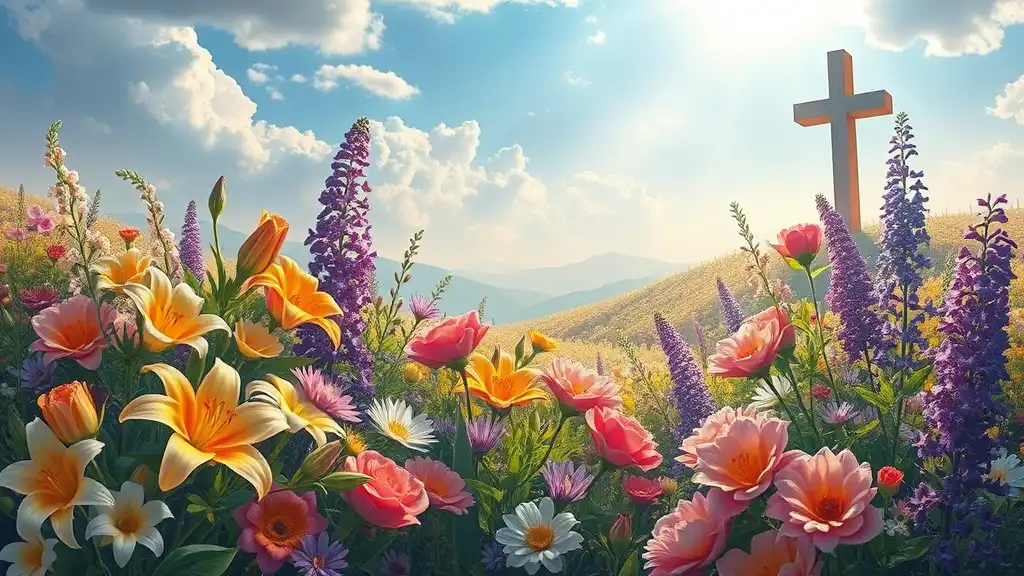
Using Flowers in Spiritual Practices
Flower Offerings and Altars
Creating a spiritual altar with flowers can be a profound practice that fosters a deeper connection with the divine and encourages reflection. When selecting flowers for an altar, choose those that resonate with your intentions and feelings.
Flower offerings are sacred gestures, often signifying gratitude, reverence, and the connection between the earthly and the divine. Incorporating freshly cut flowers into your sacred space invites natural energy and beauty, enhancing meditation and prayer.
Meditation with Flowers
Meditation is another powerful way to incorporate flowers into spiritual practice. By focusing on the delicate structure and aroma of flowers, practitioners can cultivate a deeper sense of awareness and presence.
Choose a flower that resonates with you and engage your senses: feel its texture, inhale its fragrance, and visualize its beauty. This practice invites a sense of peace and connection, fostering mindfulness and spiritual clarity.
Flower Therapy and Healing
The therapeutic effects of flowers on the spirit and mind are noteworthy, particularly in the field of aromatherapy. The scents of various flowers can evoke emotions, memories, and relaxation, offering a bridge to emotional healing.
Essences derived from flowers, such as bach flower remedies, are used in holistic approaches to address emotional imbalances and spiritual disconnection. Engaging with the energy of flowers promotes healing on many levels, encouraging personal empowerment and self-discovery.
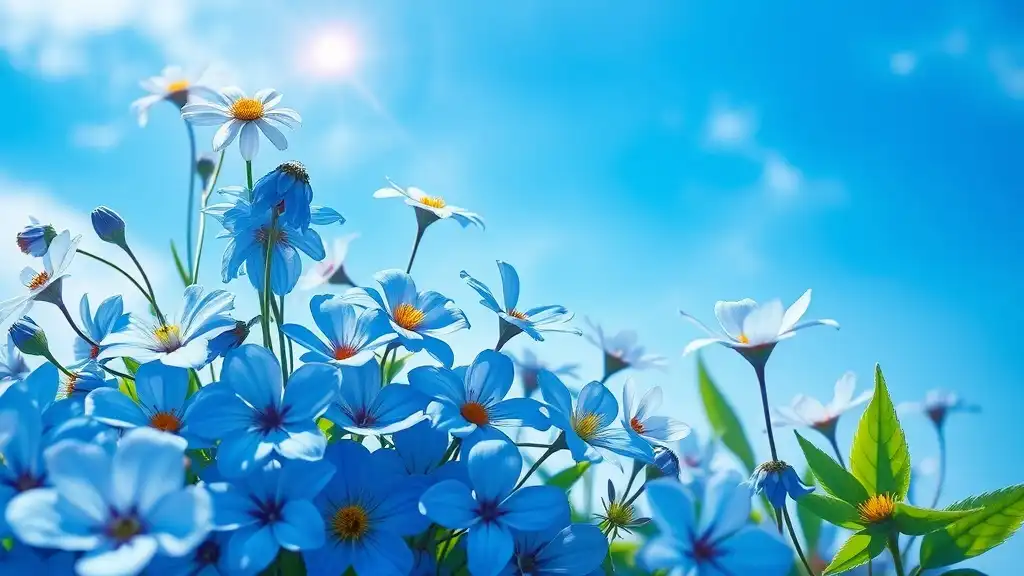
Conclusion
The spiritual significance of flowers lies in their ability to connect us to nature, our emotions, and the greater cosmos. By exploring the meanings behind different flowers, we cultivate an awareness of our own spiritual journey and the transformations that shape our lives. As we deepen our connection with the floral world, we find joy, inspiration, and spiritual growth guided by the vibrant language of flowers.

